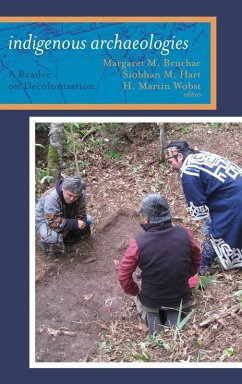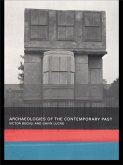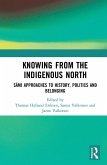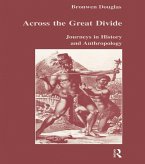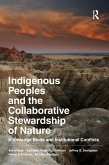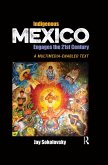Indigenous Archaeologies (eBook, PDF)
A Reader on Decolonization
Redaktion: Bruchac, Margaret; Wobst, H Martin; Hart, Siobhan
41,95 €
41,95 €
inkl. MwSt.
Sofort per Download lieferbar

21 °P sammeln
41,95 €
Als Download kaufen

41,95 €
inkl. MwSt.
Sofort per Download lieferbar

21 °P sammeln
Jetzt verschenken
Alle Infos zum eBook verschenken
41,95 €
inkl. MwSt.
Sofort per Download lieferbar
Alle Infos zum eBook verschenken

21 °P sammeln
Indigenous Archaeologies (eBook, PDF)
A Reader on Decolonization
Redaktion: Bruchac, Margaret; Wobst, H Martin; Hart, Siobhan
- Format: PDF
- Merkliste
- Auf die Merkliste
- Bewerten Bewerten
- Teilen
- Produkt teilen
- Produkterinnerung
- Produkterinnerung

Bitte loggen Sie sich zunächst in Ihr Kundenkonto ein oder registrieren Sie sich bei
bücher.de, um das eBook-Abo tolino select nutzen zu können.
Hier können Sie sich einloggen
Hier können Sie sich einloggen
Sie sind bereits eingeloggt. Klicken Sie auf 2. tolino select Abo, um fortzufahren.

Bitte loggen Sie sich zunächst in Ihr Kundenkonto ein oder registrieren Sie sich bei bücher.de, um das eBook-Abo tolino select nutzen zu können.
This reader of original and reprinted articles-many by indigenous authors-is designed to display the array of writings around relationships between archaeologists and indigenous peoples around the globe.
- Geräte: PC
- mit Kopierschutz
- eBook Hilfe
- Größe: 10.49MB
Andere Kunden interessierten sich auch für
![Archaeologies of the Contemporary Past (eBook, PDF) Archaeologies of the Contemporary Past (eBook, PDF)]() Victor BuchliArchaeologies of the Contemporary Past (eBook, PDF)45,95 €
Victor BuchliArchaeologies of the Contemporary Past (eBook, PDF)45,95 €![Knowing from the Indigenous North (eBook, PDF) Knowing from the Indigenous North (eBook, PDF)]() Knowing from the Indigenous North (eBook, PDF)41,95 €
Knowing from the Indigenous North (eBook, PDF)41,95 €![Rhythms of Writing (eBook, PDF) Rhythms of Writing (eBook, PDF)]() Helena WulffRhythms of Writing (eBook, PDF)37,95 €
Helena WulffRhythms of Writing (eBook, PDF)37,95 €![Across the Great Divide (eBook, PDF) Across the Great Divide (eBook, PDF)]() Bronwen DouglasAcross the Great Divide (eBook, PDF)41,95 €
Bronwen DouglasAcross the Great Divide (eBook, PDF)41,95 €![Indigenous Peoples and the Collaborative Stewardship of Nature (eBook, PDF) Indigenous Peoples and the Collaborative Stewardship of Nature (eBook, PDF)]() Anne RossIndigenous Peoples and the Collaborative Stewardship of Nature (eBook, PDF)38,95 €
Anne RossIndigenous Peoples and the Collaborative Stewardship of Nature (eBook, PDF)38,95 €![Plants and Indigenous Medicine and Diet (eBook, PDF) Plants and Indigenous Medicine and Diet (eBook, PDF)]() Plants and Indigenous Medicine and Diet (eBook, PDF)51,95 €
Plants and Indigenous Medicine and Diet (eBook, PDF)51,95 €![Indigenous Mexico Engages the 21st Century (eBook, PDF) Indigenous Mexico Engages the 21st Century (eBook, PDF)]() Jay SokolovskyIndigenous Mexico Engages the 21st Century (eBook, PDF)39,95 €
Jay SokolovskyIndigenous Mexico Engages the 21st Century (eBook, PDF)39,95 €-
-
-
This reader of original and reprinted articles-many by indigenous authors-is designed to display the array of writings around relationships between archaeologists and indigenous peoples around the globe.
Dieser Download kann aus rechtlichen Gründen nur mit Rechnungsadresse in A, B, BG, CY, CZ, D, DK, EW, E, FIN, F, GR, HR, H, IRL, I, LT, L, LR, M, NL, PL, P, R, S, SLO, SK ausgeliefert werden.
Produktdetails
- Produktdetails
- Verlag: Taylor & Francis
- Seitenzahl: 436
- Erscheinungstermin: 3. Juni 2016
- Englisch
- ISBN-13: 9781315426761
- Artikelnr.: 45253131
- Verlag: Taylor & Francis
- Seitenzahl: 436
- Erscheinungstermin: 3. Juni 2016
- Englisch
- ISBN-13: 9781315426761
- Artikelnr.: 45253131
- Herstellerkennzeichnung Die Herstellerinformationen sind derzeit nicht verfügbar.
Margaret M. Bruchac, of Abenaki descent, is Assistant Professor of Anthropology and Coordinator of Native American and Indigenous Studies at the University of Connecticut. Siobhan M. Hart is Visiting Assistant Professor of Anthropology at Binghamton University. H. Martin Wobst is Professor of Anthropology at the University of Massachusetts, Amherst.
Preface
Section I: Decolonizing Globally
Chapter 1. Indigenous Archaeologies: A Worldwide Perspective on Human Materialities and Human Rights
Section II: Indigeneity
Chapter 2. A New Global Phenomenon?
Chapter 3. This Is Not an Answer to the Question "Who Is Indigenous?"
Chapter 4. Beyond Black and White: Essentialism
Hybridity
and Indigeneity
Section III: Philosophical
Theoretical
and Historical Underpinnings
Chapter 5. Colonizing Knowledges
Chapter 6. Indigenous Worldviews and Ways of Knowing as Theoretical and Methodological Foundations behind Archaeological Theory and Method
Chapter 7. Remythologizing the Relationship between Indians and Archaeologists
Chapter 8. Power to the (Indigenous) Past and Present! Or: The Theory and Method behind Archaeological Theory and Method
Chapter 9. Indigenous Archaeology as Decolonizing Practice
Chapter 10. Archaeology
Diaspora
and Decolonization
Chapter 11. Dwelling at the Margins
Action at the Intersection? Feminist and Indigenous Archaeologies
2005
Chapter 12. Copyrighting the Past? Emerging Intellectual Property Rights Issues in Archaeology
Chapter 13. In the Spirit of the Code
Section IV: Oceania
Chapter 14. Decolonizing Indigenous Archaeology: Developments from Down Under
Chapter 15. Nukun and Kungun Ngarrindjeri Ruwe (Look and Listen to Ngarrindjeri Country): An Investigation of Ngarrindjeri Perspectives of Archaeology in Relation to Native Title and Heritage Matters
Chapter 16. W¿hi Ngaro (The Lost Portion): Strengthening Relationships between People and Wetlands in North Taranaki
New Zealand
Chapter 17. Indigenous Research and Archaeology: Transformative Practices in/with/for the Ngarrindjeri Community
Section V: North America
Chapter 18. Beyond the Margin: American Indians
First Nations
and Archaeology in North America
Chapter 19. Paleo Is Not Our Word: Protecting and Growing a Mi'kmaw Place
Chapter 20. Caribou Crossings and Cultural Meanings: Placing Traditional Knowledge and Archaeology in Context in an Inuit Landscape
Chapter 21. Confronting Colonialism: The Mahican and Schaghticoke Peoples and Us
Chapter 22. Working on Pasts for Futures: Eastern Pequot Field School Archaeology in Connecticut
Chapter 23. Decolonizing the Archaeological Landscape: The Practice and Politics of Archaeology in British Columbia
Chapter 24. Developing an Aboriginal Archaeology: Receiving Gifts from White Buffalo Calf Woman
Chapter 25. Building a Bridge to Cross a Thousand Years
Chapter 26. Navajo Archaeologist Is Not an Oxymoron: A Tribal Archaeologist's Experience
Section VI: Mesoamerica and South America
Chapter 27. Maya Archaeology and the Political and Cultural Identity of Contemporary Maya in Guatemala
Chapter 28. México
Chapter 29. Archaeology
Landscapes
and Dreams: Science
Sacred Offerings
and the Practice of Archaeology
Chapter 30. History and Its Discontents: Stone Statues
Native Histories
and Archaeologists
Chapter 31. Reframing Social Equality within an Intercultural Archaeology
Chapter 32. Indigenous Knowledge and Archaeological Science: The Challenges of Public Archaeology in the Reserva Uaçá
Section VII: Africa
Chapter 33. Situational Ethics and Engaged Practice: The Case of Archaeology in Africa
Chapter 34. Using Archaeology to Remake History in Africa
Chapter 35. Another World: Archaeology and Intellectual Property
Chapter 36. The Roles of Applied and Development Anthropology and Archaeology among the San of Botswana
Chapter 37. Indigenous Perception of Cultural Heritage and Its Management: A Cursory Blueprint among the Senufo in the Sikasso Region of Mali
Chapter 38. Transforming Archaeology through Practice: Strategies for Collaborative Archaeology and the Community Archaeology Project at Quseir
Egypt
Chapter 39. Public Archaeology and Indigenous Communities
Section VIII: Asia
Chapter 40. The Archaeology of the Disenfranchised
Chapter 41. Multivocality
Multifaceted Voices
and Korean Archaeology
Chapter 42. Decolonizing Methodologies as Strategies of Practice: Operationalizing the Postcolonial Critique in the Archaeology of Rajasthan
Chapter 43. Whose Archaeology? Decolonizing Archaeological Perspective in Hokkaido Island
Section IX: Europe
Chapter 44. Written Off the Map: Cleared Landscapes of Medieval Ireland
Chapter 45. Colonial Constructs: Colonialism and Archaeology in the Mediterranean
Chapter 46. Public Archaeology and Indigenous Communities
Chapter 47. Time and Landscape
Chapter 48. Indigenous Journeys-Splinterville
Drenthe
Amherst
Chapter 49. Rock Carvings in a Saami Perspective: Some Comments on Politics and Ethnicity in Archaeology
Chapter 50. Prehistory
Identity
and Archaeological Representation in Nordic Museums
Section X: Futures
Chapter 51. Imagining the Future of Indigenous Archaeologies
References
Index
About the Editors
Section I: Decolonizing Globally
Chapter 1. Indigenous Archaeologies: A Worldwide Perspective on Human Materialities and Human Rights
Section II: Indigeneity
Chapter 2. A New Global Phenomenon?
Chapter 3. This Is Not an Answer to the Question "Who Is Indigenous?"
Chapter 4. Beyond Black and White: Essentialism
Hybridity
and Indigeneity
Section III: Philosophical
Theoretical
and Historical Underpinnings
Chapter 5. Colonizing Knowledges
Chapter 6. Indigenous Worldviews and Ways of Knowing as Theoretical and Methodological Foundations behind Archaeological Theory and Method
Chapter 7. Remythologizing the Relationship between Indians and Archaeologists
Chapter 8. Power to the (Indigenous) Past and Present! Or: The Theory and Method behind Archaeological Theory and Method
Chapter 9. Indigenous Archaeology as Decolonizing Practice
Chapter 10. Archaeology
Diaspora
and Decolonization
Chapter 11. Dwelling at the Margins
Action at the Intersection? Feminist and Indigenous Archaeologies
2005
Chapter 12. Copyrighting the Past? Emerging Intellectual Property Rights Issues in Archaeology
Chapter 13. In the Spirit of the Code
Section IV: Oceania
Chapter 14. Decolonizing Indigenous Archaeology: Developments from Down Under
Chapter 15. Nukun and Kungun Ngarrindjeri Ruwe (Look and Listen to Ngarrindjeri Country): An Investigation of Ngarrindjeri Perspectives of Archaeology in Relation to Native Title and Heritage Matters
Chapter 16. W¿hi Ngaro (The Lost Portion): Strengthening Relationships between People and Wetlands in North Taranaki
New Zealand
Chapter 17. Indigenous Research and Archaeology: Transformative Practices in/with/for the Ngarrindjeri Community
Section V: North America
Chapter 18. Beyond the Margin: American Indians
First Nations
and Archaeology in North America
Chapter 19. Paleo Is Not Our Word: Protecting and Growing a Mi'kmaw Place
Chapter 20. Caribou Crossings and Cultural Meanings: Placing Traditional Knowledge and Archaeology in Context in an Inuit Landscape
Chapter 21. Confronting Colonialism: The Mahican and Schaghticoke Peoples and Us
Chapter 22. Working on Pasts for Futures: Eastern Pequot Field School Archaeology in Connecticut
Chapter 23. Decolonizing the Archaeological Landscape: The Practice and Politics of Archaeology in British Columbia
Chapter 24. Developing an Aboriginal Archaeology: Receiving Gifts from White Buffalo Calf Woman
Chapter 25. Building a Bridge to Cross a Thousand Years
Chapter 26. Navajo Archaeologist Is Not an Oxymoron: A Tribal Archaeologist's Experience
Section VI: Mesoamerica and South America
Chapter 27. Maya Archaeology and the Political and Cultural Identity of Contemporary Maya in Guatemala
Chapter 28. México
Chapter 29. Archaeology
Landscapes
and Dreams: Science
Sacred Offerings
and the Practice of Archaeology
Chapter 30. History and Its Discontents: Stone Statues
Native Histories
and Archaeologists
Chapter 31. Reframing Social Equality within an Intercultural Archaeology
Chapter 32. Indigenous Knowledge and Archaeological Science: The Challenges of Public Archaeology in the Reserva Uaçá
Section VII: Africa
Chapter 33. Situational Ethics and Engaged Practice: The Case of Archaeology in Africa
Chapter 34. Using Archaeology to Remake History in Africa
Chapter 35. Another World: Archaeology and Intellectual Property
Chapter 36. The Roles of Applied and Development Anthropology and Archaeology among the San of Botswana
Chapter 37. Indigenous Perception of Cultural Heritage and Its Management: A Cursory Blueprint among the Senufo in the Sikasso Region of Mali
Chapter 38. Transforming Archaeology through Practice: Strategies for Collaborative Archaeology and the Community Archaeology Project at Quseir
Egypt
Chapter 39. Public Archaeology and Indigenous Communities
Section VIII: Asia
Chapter 40. The Archaeology of the Disenfranchised
Chapter 41. Multivocality
Multifaceted Voices
and Korean Archaeology
Chapter 42. Decolonizing Methodologies as Strategies of Practice: Operationalizing the Postcolonial Critique in the Archaeology of Rajasthan
Chapter 43. Whose Archaeology? Decolonizing Archaeological Perspective in Hokkaido Island
Section IX: Europe
Chapter 44. Written Off the Map: Cleared Landscapes of Medieval Ireland
Chapter 45. Colonial Constructs: Colonialism and Archaeology in the Mediterranean
Chapter 46. Public Archaeology and Indigenous Communities
Chapter 47. Time and Landscape
Chapter 48. Indigenous Journeys-Splinterville
Drenthe
Amherst
Chapter 49. Rock Carvings in a Saami Perspective: Some Comments on Politics and Ethnicity in Archaeology
Chapter 50. Prehistory
Identity
and Archaeological Representation in Nordic Museums
Section X: Futures
Chapter 51. Imagining the Future of Indigenous Archaeologies
References
Index
About the Editors
Preface
Section I: Decolonizing Globally
Chapter 1. Indigenous Archaeologies: A Worldwide Perspective on Human Materialities and Human Rights
Section II: Indigeneity
Chapter 2. A New Global Phenomenon?
Chapter 3. This Is Not an Answer to the Question "Who Is Indigenous?"
Chapter 4. Beyond Black and White: Essentialism
Hybridity
and Indigeneity
Section III: Philosophical
Theoretical
and Historical Underpinnings
Chapter 5. Colonizing Knowledges
Chapter 6. Indigenous Worldviews and Ways of Knowing as Theoretical and Methodological Foundations behind Archaeological Theory and Method
Chapter 7. Remythologizing the Relationship between Indians and Archaeologists
Chapter 8. Power to the (Indigenous) Past and Present! Or: The Theory and Method behind Archaeological Theory and Method
Chapter 9. Indigenous Archaeology as Decolonizing Practice
Chapter 10. Archaeology
Diaspora
and Decolonization
Chapter 11. Dwelling at the Margins
Action at the Intersection? Feminist and Indigenous Archaeologies
2005
Chapter 12. Copyrighting the Past? Emerging Intellectual Property Rights Issues in Archaeology
Chapter 13. In the Spirit of the Code
Section IV: Oceania
Chapter 14. Decolonizing Indigenous Archaeology: Developments from Down Under
Chapter 15. Nukun and Kungun Ngarrindjeri Ruwe (Look and Listen to Ngarrindjeri Country): An Investigation of Ngarrindjeri Perspectives of Archaeology in Relation to Native Title and Heritage Matters
Chapter 16. W¿hi Ngaro (The Lost Portion): Strengthening Relationships between People and Wetlands in North Taranaki
New Zealand
Chapter 17. Indigenous Research and Archaeology: Transformative Practices in/with/for the Ngarrindjeri Community
Section V: North America
Chapter 18. Beyond the Margin: American Indians
First Nations
and Archaeology in North America
Chapter 19. Paleo Is Not Our Word: Protecting and Growing a Mi'kmaw Place
Chapter 20. Caribou Crossings and Cultural Meanings: Placing Traditional Knowledge and Archaeology in Context in an Inuit Landscape
Chapter 21. Confronting Colonialism: The Mahican and Schaghticoke Peoples and Us
Chapter 22. Working on Pasts for Futures: Eastern Pequot Field School Archaeology in Connecticut
Chapter 23. Decolonizing the Archaeological Landscape: The Practice and Politics of Archaeology in British Columbia
Chapter 24. Developing an Aboriginal Archaeology: Receiving Gifts from White Buffalo Calf Woman
Chapter 25. Building a Bridge to Cross a Thousand Years
Chapter 26. Navajo Archaeologist Is Not an Oxymoron: A Tribal Archaeologist's Experience
Section VI: Mesoamerica and South America
Chapter 27. Maya Archaeology and the Political and Cultural Identity of Contemporary Maya in Guatemala
Chapter 28. México
Chapter 29. Archaeology
Landscapes
and Dreams: Science
Sacred Offerings
and the Practice of Archaeology
Chapter 30. History and Its Discontents: Stone Statues
Native Histories
and Archaeologists
Chapter 31. Reframing Social Equality within an Intercultural Archaeology
Chapter 32. Indigenous Knowledge and Archaeological Science: The Challenges of Public Archaeology in the Reserva Uaçá
Section VII: Africa
Chapter 33. Situational Ethics and Engaged Practice: The Case of Archaeology in Africa
Chapter 34. Using Archaeology to Remake History in Africa
Chapter 35. Another World: Archaeology and Intellectual Property
Chapter 36. The Roles of Applied and Development Anthropology and Archaeology among the San of Botswana
Chapter 37. Indigenous Perception of Cultural Heritage and Its Management: A Cursory Blueprint among the Senufo in the Sikasso Region of Mali
Chapter 38. Transforming Archaeology through Practice: Strategies for Collaborative Archaeology and the Community Archaeology Project at Quseir
Egypt
Chapter 39. Public Archaeology and Indigenous Communities
Section VIII: Asia
Chapter 40. The Archaeology of the Disenfranchised
Chapter 41. Multivocality
Multifaceted Voices
and Korean Archaeology
Chapter 42. Decolonizing Methodologies as Strategies of Practice: Operationalizing the Postcolonial Critique in the Archaeology of Rajasthan
Chapter 43. Whose Archaeology? Decolonizing Archaeological Perspective in Hokkaido Island
Section IX: Europe
Chapter 44. Written Off the Map: Cleared Landscapes of Medieval Ireland
Chapter 45. Colonial Constructs: Colonialism and Archaeology in the Mediterranean
Chapter 46. Public Archaeology and Indigenous Communities
Chapter 47. Time and Landscape
Chapter 48. Indigenous Journeys-Splinterville
Drenthe
Amherst
Chapter 49. Rock Carvings in a Saami Perspective: Some Comments on Politics and Ethnicity in Archaeology
Chapter 50. Prehistory
Identity
and Archaeological Representation in Nordic Museums
Section X: Futures
Chapter 51. Imagining the Future of Indigenous Archaeologies
References
Index
About the Editors
Section I: Decolonizing Globally
Chapter 1. Indigenous Archaeologies: A Worldwide Perspective on Human Materialities and Human Rights
Section II: Indigeneity
Chapter 2. A New Global Phenomenon?
Chapter 3. This Is Not an Answer to the Question "Who Is Indigenous?"
Chapter 4. Beyond Black and White: Essentialism
Hybridity
and Indigeneity
Section III: Philosophical
Theoretical
and Historical Underpinnings
Chapter 5. Colonizing Knowledges
Chapter 6. Indigenous Worldviews and Ways of Knowing as Theoretical and Methodological Foundations behind Archaeological Theory and Method
Chapter 7. Remythologizing the Relationship between Indians and Archaeologists
Chapter 8. Power to the (Indigenous) Past and Present! Or: The Theory and Method behind Archaeological Theory and Method
Chapter 9. Indigenous Archaeology as Decolonizing Practice
Chapter 10. Archaeology
Diaspora
and Decolonization
Chapter 11. Dwelling at the Margins
Action at the Intersection? Feminist and Indigenous Archaeologies
2005
Chapter 12. Copyrighting the Past? Emerging Intellectual Property Rights Issues in Archaeology
Chapter 13. In the Spirit of the Code
Section IV: Oceania
Chapter 14. Decolonizing Indigenous Archaeology: Developments from Down Under
Chapter 15. Nukun and Kungun Ngarrindjeri Ruwe (Look and Listen to Ngarrindjeri Country): An Investigation of Ngarrindjeri Perspectives of Archaeology in Relation to Native Title and Heritage Matters
Chapter 16. W¿hi Ngaro (The Lost Portion): Strengthening Relationships between People and Wetlands in North Taranaki
New Zealand
Chapter 17. Indigenous Research and Archaeology: Transformative Practices in/with/for the Ngarrindjeri Community
Section V: North America
Chapter 18. Beyond the Margin: American Indians
First Nations
and Archaeology in North America
Chapter 19. Paleo Is Not Our Word: Protecting and Growing a Mi'kmaw Place
Chapter 20. Caribou Crossings and Cultural Meanings: Placing Traditional Knowledge and Archaeology in Context in an Inuit Landscape
Chapter 21. Confronting Colonialism: The Mahican and Schaghticoke Peoples and Us
Chapter 22. Working on Pasts for Futures: Eastern Pequot Field School Archaeology in Connecticut
Chapter 23. Decolonizing the Archaeological Landscape: The Practice and Politics of Archaeology in British Columbia
Chapter 24. Developing an Aboriginal Archaeology: Receiving Gifts from White Buffalo Calf Woman
Chapter 25. Building a Bridge to Cross a Thousand Years
Chapter 26. Navajo Archaeologist Is Not an Oxymoron: A Tribal Archaeologist's Experience
Section VI: Mesoamerica and South America
Chapter 27. Maya Archaeology and the Political and Cultural Identity of Contemporary Maya in Guatemala
Chapter 28. México
Chapter 29. Archaeology
Landscapes
and Dreams: Science
Sacred Offerings
and the Practice of Archaeology
Chapter 30. History and Its Discontents: Stone Statues
Native Histories
and Archaeologists
Chapter 31. Reframing Social Equality within an Intercultural Archaeology
Chapter 32. Indigenous Knowledge and Archaeological Science: The Challenges of Public Archaeology in the Reserva Uaçá
Section VII: Africa
Chapter 33. Situational Ethics and Engaged Practice: The Case of Archaeology in Africa
Chapter 34. Using Archaeology to Remake History in Africa
Chapter 35. Another World: Archaeology and Intellectual Property
Chapter 36. The Roles of Applied and Development Anthropology and Archaeology among the San of Botswana
Chapter 37. Indigenous Perception of Cultural Heritage and Its Management: A Cursory Blueprint among the Senufo in the Sikasso Region of Mali
Chapter 38. Transforming Archaeology through Practice: Strategies for Collaborative Archaeology and the Community Archaeology Project at Quseir
Egypt
Chapter 39. Public Archaeology and Indigenous Communities
Section VIII: Asia
Chapter 40. The Archaeology of the Disenfranchised
Chapter 41. Multivocality
Multifaceted Voices
and Korean Archaeology
Chapter 42. Decolonizing Methodologies as Strategies of Practice: Operationalizing the Postcolonial Critique in the Archaeology of Rajasthan
Chapter 43. Whose Archaeology? Decolonizing Archaeological Perspective in Hokkaido Island
Section IX: Europe
Chapter 44. Written Off the Map: Cleared Landscapes of Medieval Ireland
Chapter 45. Colonial Constructs: Colonialism and Archaeology in the Mediterranean
Chapter 46. Public Archaeology and Indigenous Communities
Chapter 47. Time and Landscape
Chapter 48. Indigenous Journeys-Splinterville
Drenthe
Amherst
Chapter 49. Rock Carvings in a Saami Perspective: Some Comments on Politics and Ethnicity in Archaeology
Chapter 50. Prehistory
Identity
and Archaeological Representation in Nordic Museums
Section X: Futures
Chapter 51. Imagining the Future of Indigenous Archaeologies
References
Index
About the Editors
